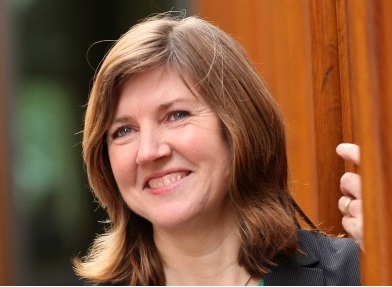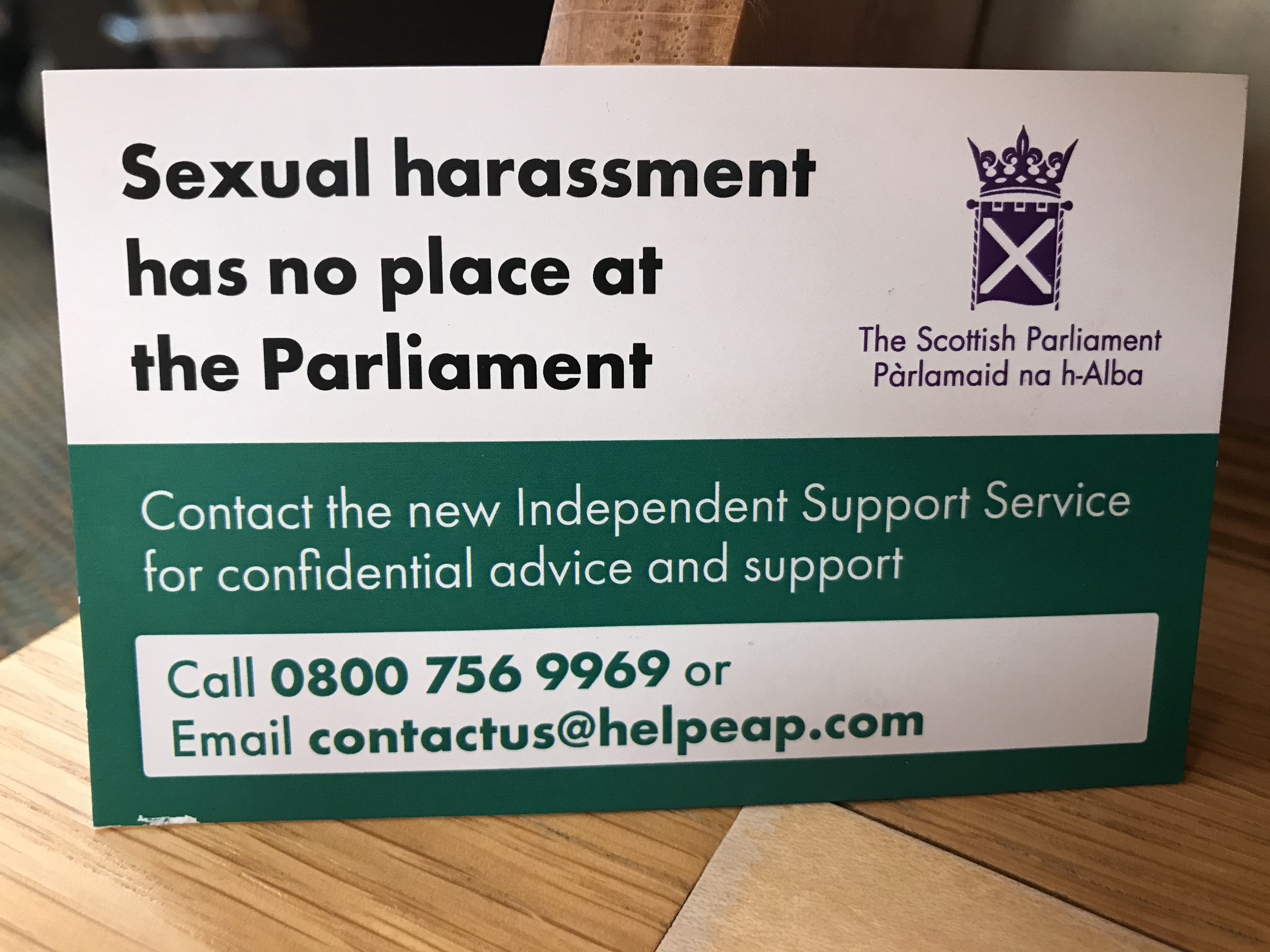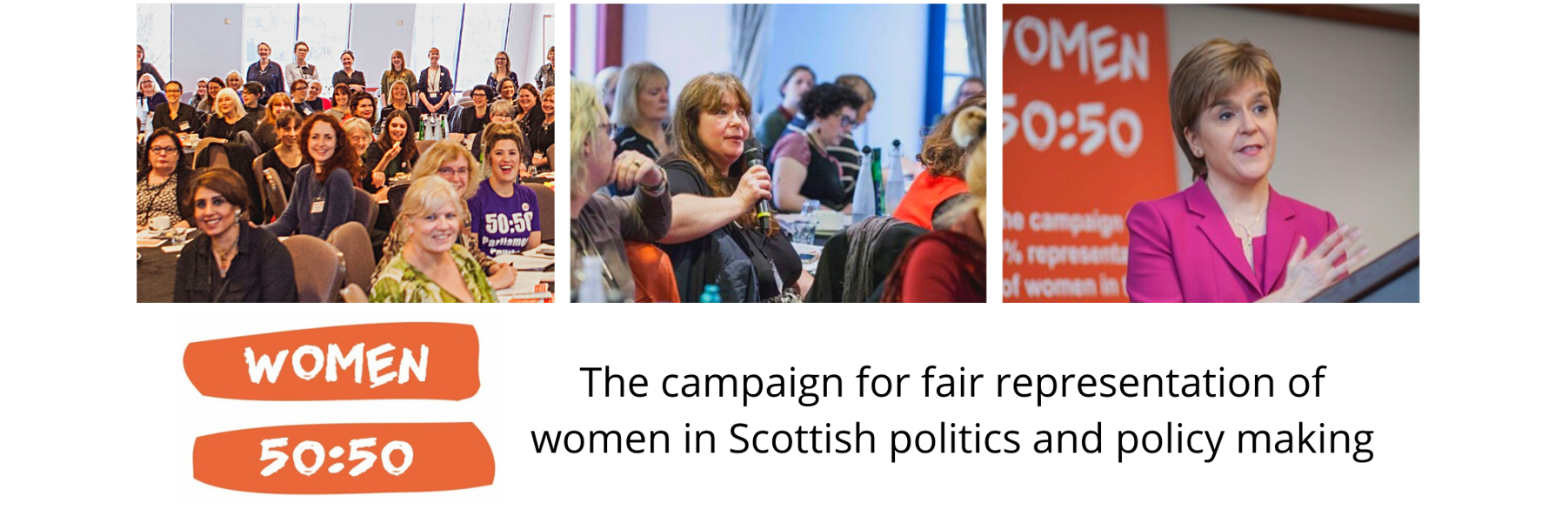This blog is from Alison Johnstone MSP, Scottish Greens Lothian MSP and a representative on the Women 50:50 steering group:

In June last year a report, produced by the Scottish Parliament’s Standard’s Committee, into sexual harassment at the Scottish Parliament, called for urgent action. The report made several recommendations including mandatory training to encourage “positive culture change “ for all those responsible for staff at the Parliament, including MSPs. There’s clearly some way to go until we have achieved that change but it’s clear that we can’t begin to tackle sexism and sexual harassment in the workplace without properly targeted action. Undoubtedly such action is required in every area of life in Scotland. The Scottish Parliament’s survey on Sexual Harassment and Sexist Behaviour results showed that 30% of women had experienced harassing behaviour. The Scottish Parliament has a central and crucial role to play here and should lead by example in addressing this cause and consequence of gender inequality.
The Presiding Officer of the Parliament, the Chief Executive and Party Leaders formalised their zero tolerance to sexual harassment and sexist behaviour in the Parliament in a statement and agreed measures to support culture and behaviour change through information and education. ‘Culture of Respect’ training was organised and last autumn I enrolled for one of these workshops, a half-day session open to all MSPs, MSP staff, Scottish Parliament staff and contractors. This training has now ended, though the slides and other materials remain available and further sessions are planned.
The aim of the session was to ensure a greater understanding of the law and definitions of what sexual harassment and sexist behaviour are, and to provide the skills and confidence to tackle it where it occurs.
On the afternoon I attended (by booking in advance online) there were about a dozen people on the course, all women apart from one man in this particular instance. In the three hours or so the training lasted, we took part in discussion led by a professional and engaging external facilitator. An early slide emphasised that all in the room are equal, no matter our day job, that we should give space for others to speak up, to be prepared to change how we might communicate, and to respect confidentiality. I will respect that confidentiality here! We then broke up into smaller groups to consider our response to various scenarios. 
We explored helpful techniques to encourage a change of behaviour when ‘banter’ we’re unhappy with is used. In my opinion, however, more training explaining what is unacceptable and why it’s unacceptable is clearly required. Homophobic and sexist comments are not banter and shouldn’t be described as such. They are never acceptable, regardless of the spirit in which they were made.
The session was helpful in reinforcing the need to treat one another with respect and courtesy. It was thought provoking. Training is important, it’s essential. But training alone won’t bring about the change we need. There’s an understandable tendency to focus on what not to do. We need to do more to prevent sexist behaviour and sexual harassment in the first instance. Two well-evidenced ways to do so are by teaching bystanders to intervene and by promoting more women. Research has continually shown that companies with more women in management have less sexual harassment.
It’s hugely concerning that research from expert organisations including Close the Gap tells us that under-reporting is a significant problem. The Parliament’s own survey reported that 40% of those who experienced sexual harassment did not speak up about it. We received training on how to challenge and seek to change sexist behaviour and sexual harassment. I found this helpful, but would definitely benefit from future training opportunities to reinforce what I have learned.
The Scottish Parliament has set up a Joint Working Group on Sexual Harassment. Posters and cards advising of a new Independent Support Service for confidential advice and support are on display across the Parliament estate. These alone won’t change the culture and it’s devastating that in 2019 such a service is required, but by shining a light on this behaviour we can begin to bring about an end to sexism and sexual harassment.

